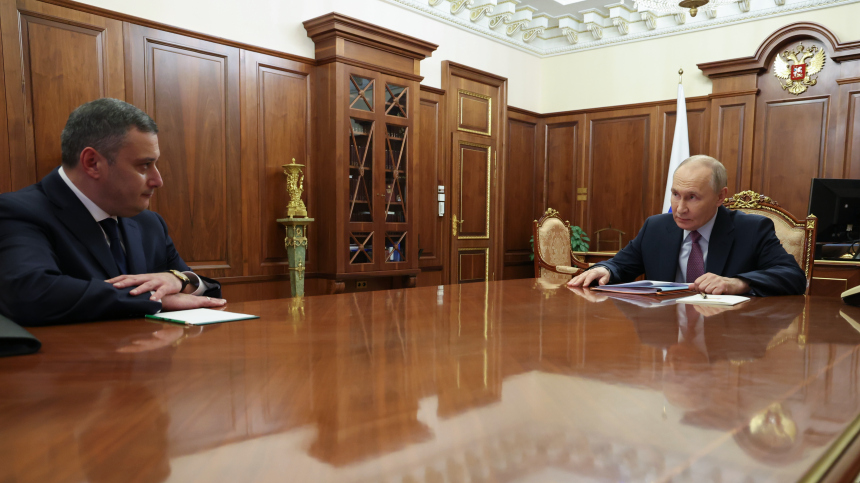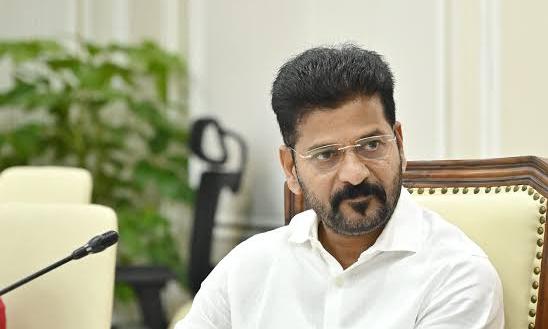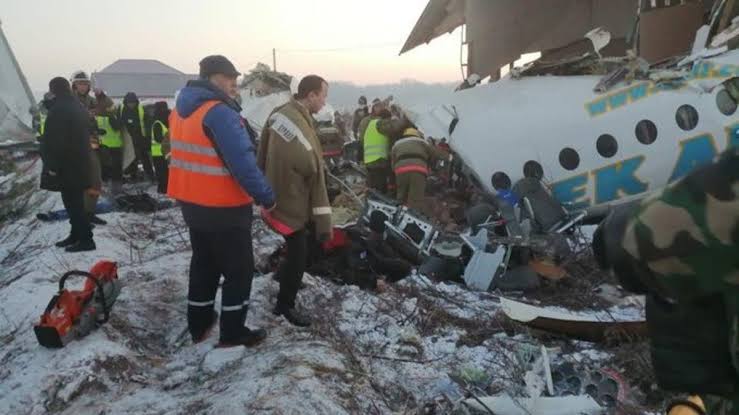Kursk's New Governance amidst Crisis Unfolds
The replacement of Kursk's governor by President Vladimir Putin has brought significant attention to the region due to its strategic and crisis management needs in a challenging context.
Published December 07, 2024 - 00:12am

Image recovered from 5-tv.ru
In a dramatic political adjustment rooted in urgent crisis management, President Vladimir Putin has appointed Alexander Khinshtein as the acting governor of the strategically important Kursk region. Khinshtein, a prominent lawmaker and a trusted figure in the Kremlin circles, stepped into a volatile leadership role previously held by Alexei Smirnov, who resigned amid public displeasure and notable management criticisms. This change reflects Putin's strategy to reinforce regional leadership during a period characterized by geopolitical tension and local unrest.
The Kursk region, sitting along Russia's heavily militarized frontier with Ukraine, finds itself at the eye of a storm due to recent military incursions by Ukrainian forces. In August, Ukrainian troops launched a surprise offensive that temporarily seized parts of Kursk, provoking both humanitarian and political crises. The incumbent governor was overwhelmed by events that left parts of the region ungoverned and residents displaced. The conflict has exacerbated public dissatisfaction, with residents feeling neglected by the local administration.
Typically elected on a gubernatorial mandate, Smirnov's abrupt exit underscores a prevalent issue with how such mandates are respected or, in some cases, disregarded in favor of Kremlin's strategic interests. Despite securing a clear electoral victory as per regional vote outcomes, the swift replacement underscores issues with electoral credibility, as observers like political analyst Abbas Galljamow suggest that election manipulations undermine genuine public representation.
President Putin, wary of the precarious situation and anxious to fortify regional defense, turned to Khinshtein. Well-versed in political and security matters, Khinshtein's appointment signals a potentially firm Kremlin hand in the region's stabilization efforts. Not just an ordinary politician, Khinshtein's background includes a substantive role as an advisor to the Russian National Guard. His unique skill set is seen as essential for managing crises posed by both the insurgency and the demands from aggrieved local populations.
Khinshtein's main tasks revolve around addressing regional governance lapses and facilitating better integration of Kursk's residents into national frameworks, particularly through improved communication channels. Public perception has been marred by the sense of being under-informed and under-supported. Reflecting these sentiments, public appeals have emerged, critiquing the regional administration's effectiveness and calling directly on President Putin's intervention for immediate relief measures.
Further complicating matters is the ongoing contentious political atmosphere, where accusations of looting and corruption amid chaos deepen the regional management crisis. Former governor Roman Starovoit, now part of the national administration, openly acknowledged issues with mismanagement during a public meeting. Such admissions, critical in a nation where dissent rarely surfaces in mainstream media, underscore a systemic challenge that Khinshtein is expected to address.
Khinshtein's task, defined amidst collapsing infrastructures and social distress, is daunting. He must navigate the sensitive restoration of territories and ensure the prompt delivery of housing and communal services to displaced populations. The physical rebuilding is coupled with a psychological dimension of reinstating trust between governance structures and the citizenry. This task demands not just administrative acumen but considerable empathy and strategic clarity.
Ultimately, the Kursk crisis offers an intricate glimpse into Russian domestic politics during turbulent times. It illuminates how leadership in contested regions is not merely about administrative stewardship but involves navigating complex political, social, and military dynamics. Khinshtein's assumption of office, consequently, marks not just a shift in regional leadership but an indicator of Kremlin's ongoing strategy in fortifying its national defenses amid geopolitical adversities.
This scenario paints a picture of an administrative overhaul completely knitted with the fabric of national security strategy. Whether Khinshtein's tenure will effectively quell the unrest and deliver on the expectations remains a critical focus area for both regional politics and wider Moscow's strategic goals.







